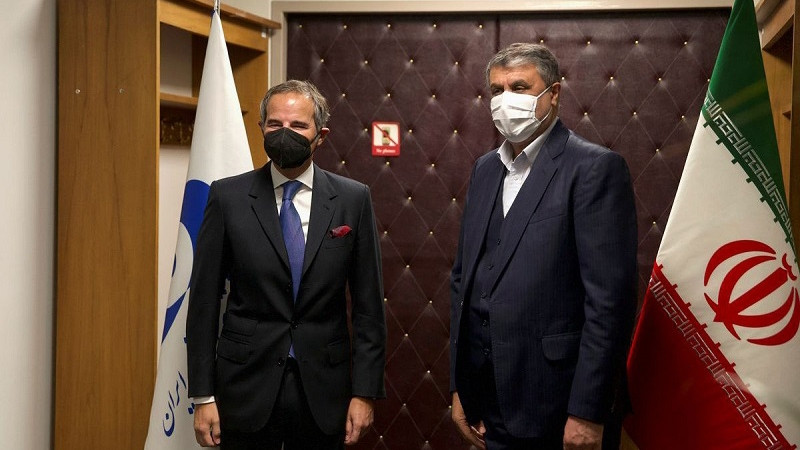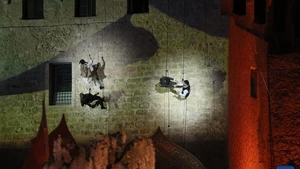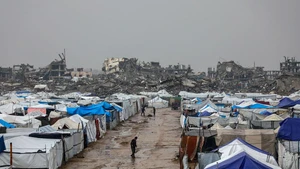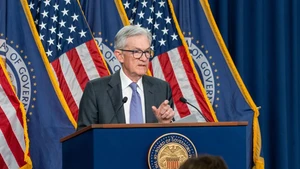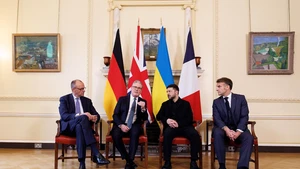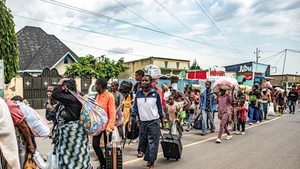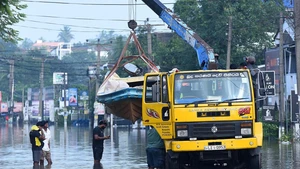The eighth round of talks on restoring the JCPOA is taking place in Vienna with the goal of restoring the agreement to its original form and bringing the US back to the multilateral deal, which Washington abandoned in 2018 under former President Donald Trump.
The work is being carried out within the framework of consultations between the joint commission of Iran and the five other JCPOA states (Russia, China, Germany, the UK, and France), through private talks with the US without Iran's participation, and also in the form of three working groups. Negotiators are developing a final draft agreement and are determined to complete it in the near future.
Although the parties claim to be nearing an agreement, Iran still insists on taking a tough stance on issues that cannot be compromised. To continue the nuclear talks and reach a final agreement, Iran's precondition for the West is to respect "red lines", including ensuring Tehran's economic interests.
Russia also wants written assurances from the US, at least at the foreign ministerial level, that sanctions against Russia will not disrupt cooperation with Iran under the 2015 nuclear agreement, which Tehran and world powers are trying to revive. In the context of the West's imposition of new sanctions, the Russian side wants to receive a clear answer from the US regarding bilateral relations between Moscow and Tehran as well as the Iran nuclear deal.
The US side affirmed that there will still be several issues to be resolved with Iran in the context that the US believes that the old agreement framework is not sufficient to curb Tehran's nuclear programme.
Recently, the International Atomic Energy Agency (IAEA) said that Iran's stock of enriched uranium has reached more than 15 times the limit imposed in the JCPOA. According to the IAEA report, it is estimated that Iran's total enriched uranium stockpile has reached 3197.1 kilograms. By early June, Iran and the IAEA aim to resolve the standoff over the origin of uranium particles found at old but undeclared sites. Iran has agreed to a roadmap with the IAEA to resolve all outstanding questions about the country's nuclear programme.
This is considered the latest lever to contribute to quickly restoring the nuclear deal. According to the Director-General of the IAEA, Iran's cooperation is necessary for an agreement and good progress, and even a conclusion on this matter can be reached before the deadline in June.
The fact is that if the current problems cannot be resolved, the parties may not be able to save the JCPOA. A key point in the nuclear talks is that Tehran wants western countries to stop discussing some traces of uranium found at old but undeclared nuclear sites in Iran.
Tehran called for the closure of the IAEA's investigation into the presence of nuclear material at undisclosed locations. According to the negotiating countries, this is a separate issue from the 2015 nuclear deal and needs to be removed from Tehran.
The Iranian side raised three outstanding issues in the talks, including the extent of sanctions withdrawal, the assurance that the US will not withdraw from the agreement again and the implementation of Tehran's nuclear commitments. Iran has said it will not accept any deadlines set by the West for the resumption of the nuclear deal. Meanwhile, the US side said the negotiations are at a decisive stage and that the US wants to see more clarity from the Iranian side in promoting progress in talks.
Although both Russia and representatives of the European Union (EU) have expressed optimism about the possibility of reaching a nuclear deal, the difficult disagreements between the US and Iran led Washington and its allies to declare that a plan B has been prepared in case the talks fail.
